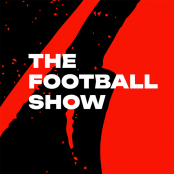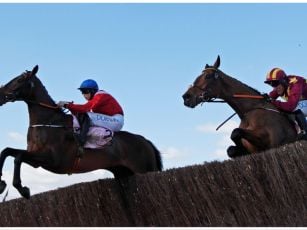It's a Friday afternoon in St Catherine's Community Centre, just outside Dublin's City Centre, where members of the press and Swim Ireland have gathered.
In the stifling heat, the discussion gets underway - the theme of which is personal journeys - and we get a chance to see what each of Ireland's four Olympic swimmers have done to get them to this point.
The gathering comes at the end of a week when The McLaren Report is released, detailing accounts of state-sponsored doping in Russia across a litany of Olympic sports. Speaking to Off The Ball, Martyn Ziegler of The Times said the report accounted for "probably one of the darkest days in the history of sport".
"I understand that there might be this cloud, but from my perspective I know when these Games start that it will take over everything," Ireland's 100m breaststroke hopeful Nicholas Quinn tells Newstalk.com.
"Regardless of everything that has happened beforehand, they’ll still talk about it at those Games. Maybe I’m wrong, but I don’t believe that people will refuse to watch the swimming or the golf for whatever controversies that have happened.
"This is huge, it’s going to take over the whole world. I feel like before every major Games, there’s always something that’s not right and it’s so big you’ll never have it perfect. You make do with the best that you have. Not to say that all the stuff that has happened will be forgotten about, but the Olympics in itself is still going to be the Olympics. Things like this come around once every four years, you can’t let yourself get distracted.
"It’s a little bit frustrating, but there’s so little that would stop me from going to this. You would have to do something awful to me to want me to not go to it. It’s something I’ve dreamed of for so long. It’s not an option. In all honestly it doesn’t even occur to me."
The event is relaxed as each swimmer present chats openly with members of the media, sharing their personal experiences to get them to this point. There are no airs or graces, each of these athletes are just relishing the chance to represent their Ireland at the Games in Rio.
So what of Quinn's journey?
"I swam in Castlebar. I’m the youngest sibling in my family, I’ve got an older brother and sister. They swam before me and naturally I just followed them. I played all other sports as well and gradually dropped them one-by-one until there was only one left standing."
The 23-year-old attended St Gerald’s College, the same school as a number of current Mayo footballers including Cillian O'Connor and Aidan O'Shea. However, it was swimming that stuck with him above all others.
"I fell in love with the sport. I loved being able to push myself and work hard. I’m pretty competitive so I enjoyed that aspect of it as well. I could control it so it was up to me if I did well or I didn’t do well. It was up to the decisions I made.
"I had a great base to train in Castlebar with my coach Marian English - I can’t thank her enough. Then I moved to Edinburgh and everything moved a step up when I went over. The University of Edinburgh team over there is set up like a high performance team.
"I had two pools, a long course and a short course pool. We’ve got our own strength and conditioning coaches and all the support you could ask for. I guess all the resources were there then to help me be the best that I could be."

Nicholas Quinn isn't deterred by the negative press surrounding the Rio Olympics. Image: ©INPHO/Gary Carr
Quinn achieved qualification for the Olympics back in April after claiming gold in the claimed gold at the Eindhoven Swim Cup. The result was momentous, but Quinn explains that the real preparation began years before this.
"I always knew that I’d finish college roughly around 2016 so I was going to keep swimming until then. If I was in a position to qualify then great. Two years ago was when it really sunk in and that I was still improving I thought I wasn’t too far away from being there. It was something I felt I could really do.
"From two years ago everything was kind of set up to qualify. I knew around April or March 2016 was the time I would have to target to try and qualify.
"At European Championships two years ago I tried to get myself as fast as I could so I could keep chipping away at the time. This way in 2016 I wouldn’t have a big massive jump to make to qualify. Every year I tried to chip away at my time and get a new PB so I could put myself within a reachable distance come 2016. Thankfully in April I was able to make that push down to the time that I needed qualify.
"The reason I chose April as well was because it was a big enough time between now and the Olympics to get a big block of training in. This way I can make more improvements and try swim faster."
Great being back in Castlebar on Thurs.Thanks to everyone who came & to the club for organising the evening! pic.twitter.com/shtMYTp9d4
— Nicholas Quinn (@NicholasQuinn_) July 9, 2016
His is an honesty in effort, but there is a reluctance to chastise himself if he does not come away from these Games with a medal.
"I’m aiming to set new Personal Best (PB) because that’s all you can control. You just don’t know what everyone else is going to do.
"At this stage, half a second one way you can move up five, six or seven places. Half a second the other way, you drop the same in the wrong direction. The margins are so small but if you can go in and swim your best, you move up the ranks. That puts you in a position to get a second swim and if you do that again in the semi-final… who knows?
"But the first thing for me is swimming a PB. If I reach that and go faster than I ever have before - even if everyone else swims faster than me - I’d be able to hold my head up. I would have been at the Olympics, swam faster than I ever have before and still people were faster than me on the day. I did everything I could.
"You’ll always have people commenting [on the performances] but I have to go out and swim the race, I know what I’ve done to get here.
"Unfortunately, swimming is viewed as somewhat of a four-year sport in that not a lot of people watch it until the Games roll around. That’s something we’re trying to change, to make it more of a popular sport. That’ll give people a better idea of what we’re doing.
"I guess that’s one of pressures on athletes at the Olympics. To perform well and entice other people to perform well and get involved. We want to create the image that swimming is not just a four-year sport."
Win or lose for Quinn at these Games, the show goes on after the curtains go down on Rio 2016. Races will be run, pools will be emptied and sports will fade into the background once again. The result, at the end of the day, is a platform on which to build rather than to rest.
"I’ll be back in the pool in September and going again for the next goal.
"It doesn’t all just end after those two weeks in Rio."
Download the brand new OffTheBall App in the Play Store & App Store right now! We've got you covered!
Subscribe to OffTheBall's YouTube channel for more videos, like us on Facebook or follow us on Twitter for the latest sporting news and content.








